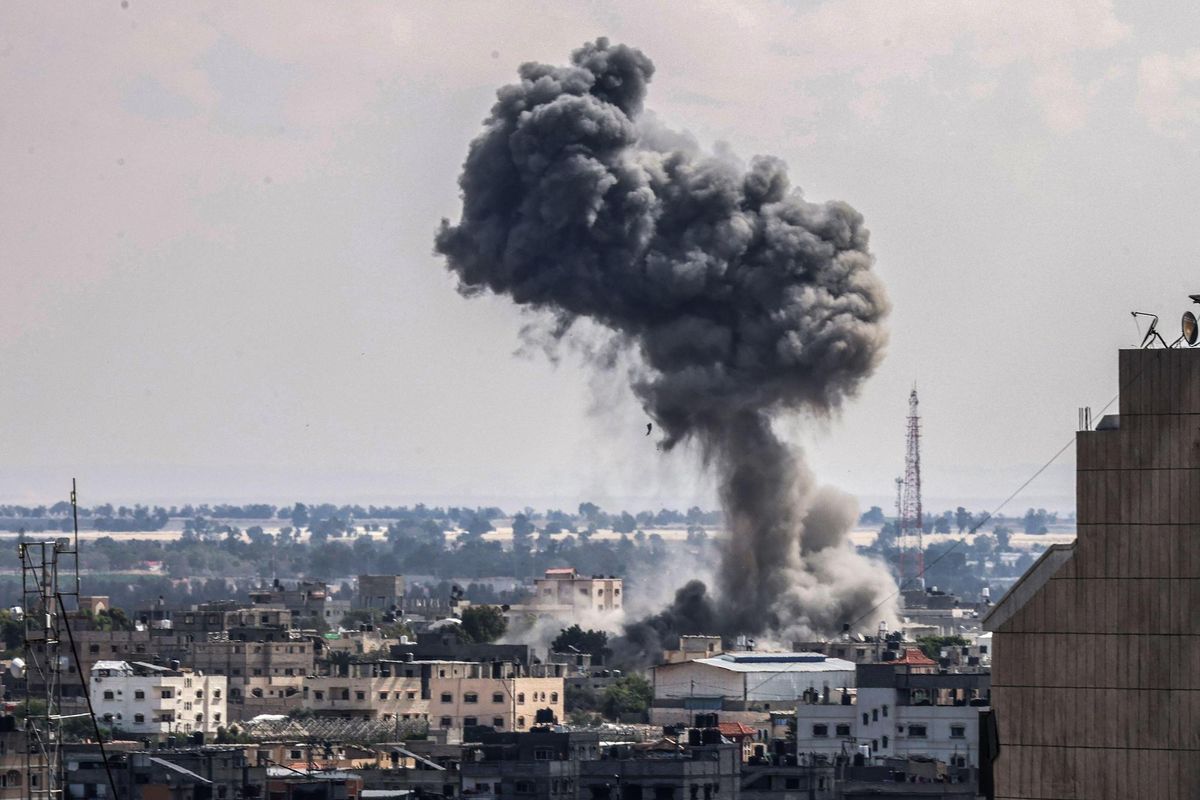Some of today’s biggest contemporary artists—Nan Goldin, Tomás Saraceno, Mark Leckey, Peter Doig, Laure Prouvost, Anthea Hamilton, Issy Wood, Kara Walker and Jeremy Deller—are among the more than 150 artists, curators, musicians, writers and publishers to have signed a second open letter published by Artforum on 19 October, in support of Palestinians.
“We call for an end to the killing and harming of all civilians, an immediate ceasefire, the passage of humanitarian aid into Gaza, and the end of the complicity of our governing bodies in grave human rights violations and war crimes,” they write.
In what they describe as an “open letter from the art community to cultural organisations”, the signatories demand that the “institutional silence” around the ongoing humanitarian crisis in Gaza “be broken immediately”. They write: “Silence at this urgent time of crisis and escalating genocide is not a politically neutral position. Over the last few years there have been significant steps to institutionally address social justice and inequality and also for your artistic programmes to benefit from these politics. We now ask that they continue and be extended in recognising the crimes against humanity that the Palestinian people are facing.” Standing in solidarity with the Palestinian people, the letter continues: “We, the undersigned, reject violence against all civilians, regardless of their identity, and we call for ending the root cause of violence: oppression, and the occupation.”
Hundreds of prominent artists—including Robert del Naja, Tai Shani, Lucy Skaer, Florence Peake, Paul Sepuya, Lawrence Abu Hamdan and Rosalind Nashashibi—are among the more than 2,000 leading actors, musicians, writers, film-makers and other creatives calling for a ceasefire in Gaza in another open letter, published by the UK group Artists for Palestine. They say Palestinians are currently facing “collective punishment on an unimaginable scale” after Israel unleashed a “complete siege” on the area, launching aerial attacks and cutting off the supply of water, power, food and medicine to 2.3 million Palestinians in Gaza.
Israel’s deadly attack on the Gaza Strip comes after Hamas terrorists crossed into Israel on 7 October on a murderous rampage, killing more than 1,300 people and taking hostages. More than 120 people were killed by gunmen who tore through the Be’eri kibbutz, while Israeli officials said at least 260 festival-goers were killed outside Re’im. Hamas is reported to be holding around 200 hostages in Gaza, among them children and the elderly.
The Israeli military has responded to these atrocities with airstrikes over the past 12 days, killing more than 3,000 Palestinians—the majority of them civilians—according to Palestinian health authorities figures cited by BBC News. Last Friday, Israel called upon 1.1 million Palestinians who live in northern Gaza to leave the area, a directive that the United Nations said is “not feasible” and “could transform what is already a tragedy into a calamitous situation”.
On Tuesday, the Al-Ahli Baptist Hospital in Gaza City, which was sheltering thousands of people displaced and injured in the conflict, was hit by an explosion that killed a further estimated 500 people. Palestinian officials blamed an Israeli airstrike for the lethal incident; the Israel Defence Forces (IDF) has “categorically” denied any involvement in the attack, attributing it to the Hamas-affiliated terror group Palestinian Islamic Jihad. The US president, Joe Biden, who was visiting Israel, today said that Pentagon intelligence suggests that the explosion was caused by “the other team” and not an Israeli airstrike.
The escalating violence has prompted actors Tilda Swinton, Charles Dance, Steve Coogan and Miriam Margolyes to sign the Artists for Palestine letter, which states that: “Our governments are not only tolerating war crimes but aiding and abetting them.” On Saturday, the British prime minister Rishi Sunak voiced “unequivocal” UK support for Israel “not just today, not just tomorrow, but always”. Since then, Britain’s foreign secretary James Cleverly has urged “restraint” from the IDF. The Labour leader Keir Starmer, who has also expressed support for Israel, has today written to Labour councillors stressing his sympathy with the plight of the Palestinian people, his demand for Israel to act within international law at all times and the importance of Gaza getting access to food, water, electricity and medicine.
The directors Michael Winterbottom, Mike Leigh and Asif Kapadia; the authors Marina Warner, Jacqueline Rose, Gillian Slovo and Courttia Newland; and the poets Hugh McFadden and Anthony Anaxagorou are among the thousands of others to have signed the Artists for Palestine letter. Its authors cite the UN’s undersecretary for humanitarian affairs Martin Griffiths, who has said that “the spectre of death” is hanging over Gaza and call for “an immediate ceasefire and the opening of Gaza’s crossings to allow humanitarian aid to enter unhindered”.
The signatories of the Artists for Palestine letter say they condemn “every act of violence against civilians and every infringement of international law whoever perpetrates them”. For now, the letter says, “our obligation is to do all we can to bring an end to the unprecedented cruelty being inflicted on Gaza”.


